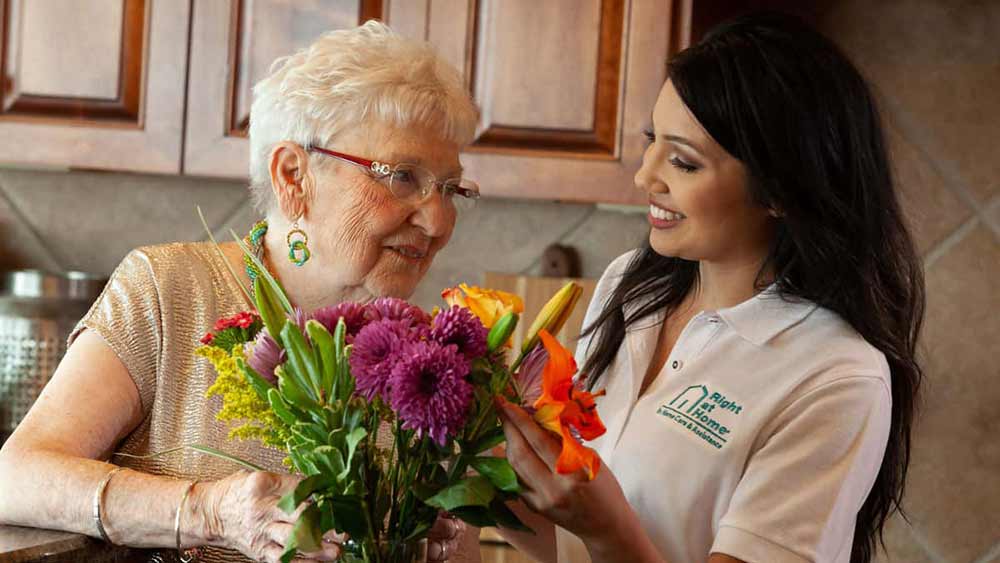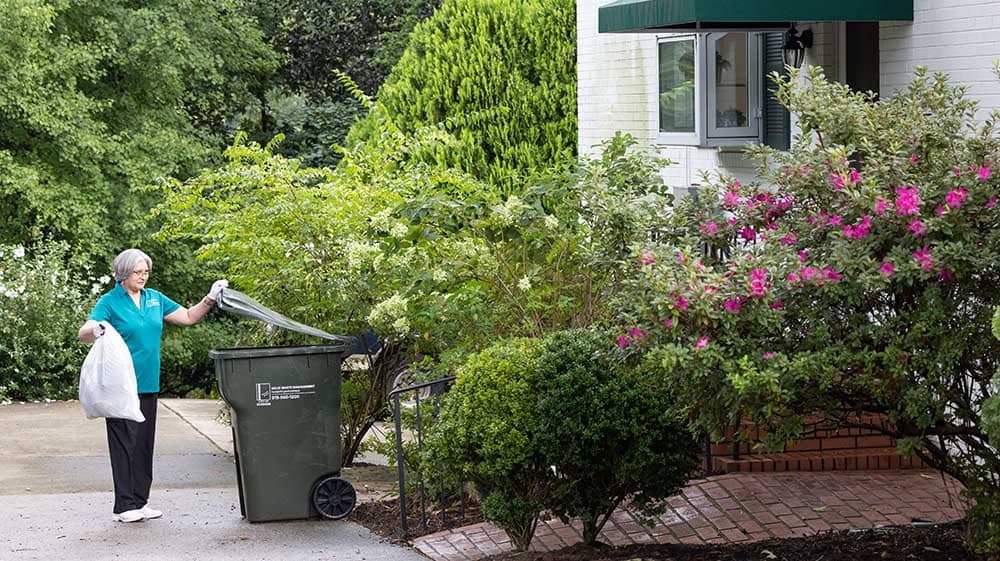

Does Dementia Affect Housekeeping or Cause Hoarding?
Retiring, getting older, perhaps downsizing—during these times, people’s habits and routines can undergo big changes, impacting every aspect of their lives, including housekeeping. As lifestyles change, some older adults can find it hard to maintain a clean and orderly home. This could be due to various reasons, ranging from physical limitations to psychological challenges or cognitive conditions such as dementia.
In some cases, hoarding behaviors can also emerge. Hoarding is characterized by the excessive collection of things—often just ordinary “stuff”—and an inability to discard items, even if they have little or no value.
It’s good for family caregivers to understand these challenges and know how to help the older adults in their lives maintain a healthy living environment.
The Link Between Dementia and Housekeeping Habits
Dementia, a condition marked by memory loss and cognitive decline, can significantly affect a person’s ability to keep up with daily routines such as housekeeping. In fact, a noticeable change in how someone manages household tasks may be one of the early signs of dementia. They might start forgetting to clean, paying less attention to personal hygiene, or even hoarding items, leading to excessive clutter.
“Hoarders exhibit a need for control over their possessions,” Dr. Charlene Chu, an assistant professor at Chapman University in California, explained in an article in Psychiatry Advisor. It may comfort them during a time of cognitive change. Further, “Individuals with hoarding disorder exhibit hyper-sentimentality, in which possessions are seen as part of the self.”
Why Does This Happen?
The brain changes caused by dementia can make it hard for individuals to plan, organize, and complete tasks. For some, recognizing the need to clean or organize isn’t as obvious as it used to be. In other cases, the motivation to keep their living space tidy diminishes. Moreover, hoarding or accumulating clutter could be linked to memory problems, where the person feels a strong attachment to objects they believe hold significant memories.
Understanding Why Seniors May Neglect Cleaning
Aside from dementia, there are several reasons why seniors might stop cleaning as they used to, including:
- Physical limitations: Health issues like arthritis or impaired mobility can make cleaning physically challenging.
- Vision problems: Poor eyesight can result in missing spots while cleaning or not noticing dirt and clutter.
- Depression: This is a common but often overlooked condition in older adults that can sap their motivation and energy, making even simple tasks seem overwhelming.
- Lack of routine: Retirement and the absence of a daily routine can disrupt cleaning schedules that were once part of their everyday life.
- Hoarding behaviors: For some seniors, hoarding items can create significant clutter and hygiene issues. This behavior often stems from emotional attachments to possessions, the fear of losing memories, or cognitive impairments that make it difficult to part with items.
How To Help Seniors With Housekeeping
Recognizing the challenges is the first step. Here are several ways to support your friend or loved one in maintaining their home:
- Offer support without judgment. Approach the topic gently, showing understanding and empathy. Offer your help in organizing and cleaning, making it a shared activity rather than a chore.
- Simplify cleaning tasks. Break down cleaning tasks into smaller, more manageable steps. Consider creating a checklist or schedule that outlines simple daily and weekly tasks.
- Modify the home environment. Make cleaning easier by organizing the living space more efficiently. Remove excess furniture or clutter that makes cleaning difficult. Consider installing grab bars in key areas to assist with mobility. These steps can also reduce the risk of falls.
- Hire professional help. If individual or family support isn’t enough, professional cleaning services or a home aide might be necessary. There are also professional organizers and senior move managers who specialize in helping people declutter their homes safely and effectively.
- Use technology. There are numerous gadgets and tools designed to make cleaning easier for those with physical limitations. Lightweight vacuum cleaners, robotic vacuums, and long-handled tools can be incredibly helpful.
- Find community resources. Look into local community resources that offer support to seniors. Many communities have services specifically designed to help them in various aspects of their daily lives, including housekeeping.
- Address hoarding directly. If hoarding is a concern, engage in compassionate conversations about the importance of decluttering for safety and health. Gradual decluttering strategies and professional assistance from mental health or senior care specialists can be crucial.
Remember to start this conversation thoughtfully. The older person may not realize or think they have a problem. They may also interpret your questions or comments as criticism. Tread carefully!
It’s Not Just About a Clean Home
The decline in housekeeping habits among seniors, whether it’s due to dementia, physical limitations, or hoarding, is a complex issue that requires a compassionate and multifaceted approach. By understanding the underlying causes and offering support and resources, we can help older loved ones maintain their dignity, independence, and quality of life.
Remember, the goal isn’t just about keeping a clean house; it’s about ensuring a safe, comfortable, and healthy living environment for our loved ones.
If your friend or loved one is showing signs that they may need a helping hand along their aging journey, tell them to reach out to their local Right at Home office for information. Visit www.rightathome.net to find the location nearest them.







